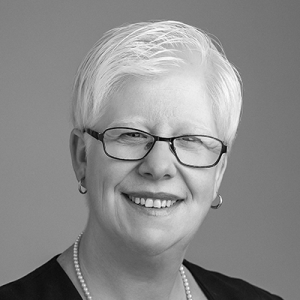
Penny Dakin is CEO of the Australian Research Alliance for Children and Youth (ARACY) and a Cohort One SILA participant.
With a passion for serving young people and communities, Penny Dakin has a strong sense of social justice – a driving force throughout her career.
Penny first made her move into the for-purpose sector after 15 years working in public service. The constant “churn,” as she describes it, with little tangible impact on the ground, led Penny to make the leap.
Realising children’s potential
Established in 2002 by former Australian of the Year, Professor Fiona Stanley, ARACY works as a “systems intermediary” that brings bright minds together to turn research and evidence into practical tools.
It’s an organisation that’s very clear about who its beneficiaries are, says Penny – “it’s the children and young people of Australia.”
Having first joined ARACY as a Research Manager – where she brought her big-picture ideas to the table – Penny’s ability to think strategically and fit different organisational and project requirements together, saw her soon move into a national leadership role with the organisation.
After a short stint with a local collective impact initiative, she then returned to ARACY in the role of CEO.
The time away working with the grass-roots organisation really “grounded her in the community,” and honed her understanding of young people’s needs, and she was pleased to return to ARACY with this expanded perspective and knowledge.
Isolated leadership, no more
From the moment Penny heard about Social Impact Leadership Australia (SILA) she knew the program was right for her, as a leader, and for ARACY too.
“I reacted so strongly at the time because being a CEO, and particularly of a small not-for-profit, can be really isolating,” Penny explains.
“I sit between two fabulous groups of people, our board and our team. But when you’re in this role, you can feel quite alone.”
For Penny, one of the biggest assets of the SILA Program is the relationships with the other participating leaders, from across the social sector.
Even after a short time together the group is bonding, especially through the program’s learning circles, and the ability to support others through their challenges has been especially rewarding:
“Whatever the circumstances…there are things that cut across the different types of organisations. It’s amazing to be able to contribute and help somebody think through a challenge they are facing.”
SILA’s peer-focused learning environment increases social capital among leaders, boosts organisational capacity, and facilitates greater collaboration across the sector, as Penny shares:
“There is a lot of competition in the for-purpose sector. We’re competing for money, the best staff and opportunities. This program disrupts that approach.
“The premise of SILA is that we’re more powerful as a sector when we’re united and driven by what’s common between us, with shared skills and language. It’s about making us stronger.”
Personally, Penny considers herself to be “very much a service-focused leader.”
She is increasingly trying to bring a systems-based and adaptive lens to her leadership and work at ARACY, and SILA is helping develop her skills and resources in this area.
“The real opportunity here is the relationships. It will stand the sector in such good stead, as we start to develop genuine systems leadership.”
